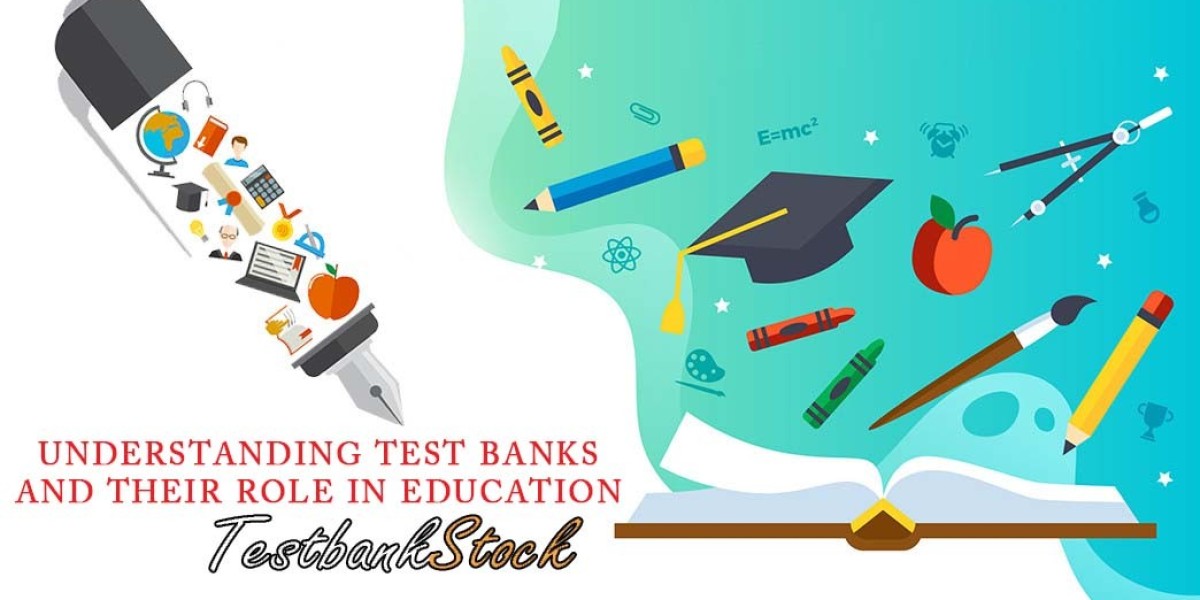Introduction
In the ever-evolving landscape of education, it's crucial to adopt tools that facilitate comprehensive learning and evaluation. Test banks have emerged as valuable resources that aid educators in crafting assessments and students in preparing for exams. This article delves into the concept of test banks, their significance in education, and how they contribute to effective learning outcomes.
What is a Test Bank?
A test bank is a curated collection of exam questions, including multiple-choice, true-false, short answer, and essay-style questions. These questions are created by instructors, educational experts, or publishers to accompany textbooks and educational materials. Test banks serve as a repository of potential questions that can be used to design quizzes, tests, and exams.
The Role of Test Banks in Education
Test banks play a multifaceted role in education. Educators can draw from them to construct assessments that accurately gauge students' understanding of the material. These banks also enable students to familiarize themselves with the types of questions they might encounter in exams. As a result, test banks promote alignment between teaching, learning, and evaluation.
Advantages of Using Test Banks
- Diverse Question Types: Test banks offer a wide variety of question formats, catering to different learning styles and cognitive levels.
- Time Efficiency: Educators save time by accessing pre-designed questions, allowing them to focus on other aspects of teaching.
- Comprehensive Assessment: Test banks help in creating well-rounded assessments that cover various topics and learning objectives.
- Student Preparation: Students can practice with test bank questions to build confidence and improve their test-taking skills.
Types of Questions in Test Banks
Test banks comprise different question types, including:
- Multiple-Choice: Presenting several answer choices, testing knowledge recall.
- True-False: Verifying the accuracy of statements based on the material.
- Short Answer: Requiring brief explanations or solutions.
- Essay-Style: Allowing in-depth responses to demonstrate understanding.
How Test Banks Are Created
Educators and experts contribute to test banks by drafting questions that align with learning objectives. Publishers may also collaborate to develop comprehensive question pools.
Effective Utilization of Test Banks by Educators
Educators can use test banks to design formative and summative assessments that accurately reflect the curriculum. They can also customize questions to suit their teaching approach and their students' needs.
Enhancing Student Preparedness with Test Banks
Students can utilize test banks to assess their understanding of the material, identify knowledge gaps, and focus their study efforts on specific areas. Regular practice with test bank questions improves retention and comprehension.
Test Banks and Critical Thinking
Contrary to concerns, well-designed test banks include questions that require critical thinking and application of knowledge. These questions challenge students to analyze, synthesize, and evaluate concepts.
Test Banks vs. Traditional Assessments
Test banks offer a dynamic alternative to traditional assessments. While traditional tests have their place, test banks provide a broader range of question types, promoting a deeper understanding of the material.
Addressing Concerns About Test Banks
Some critics argue that test banks encourage rote memorization. However, proper usage by educators emphasizes conceptual understanding and application.
The Future of Test Banks in Education
As education continues to evolve, test banks will likely adapt to suit new learning models and technologies. They will remain valuable tools that facilitate effective assessment and learning.
Conclusion
Test banks have revolutionized the educational landscape by offering a comprehensive and efficient way to assess student knowledge and enhance learning outcomes. From providing diverse question types to promoting student engagement, these tools are an essential component of modern education.
 " class="wow_main_float_head_img">
" class="wow_main_float_head_img">







